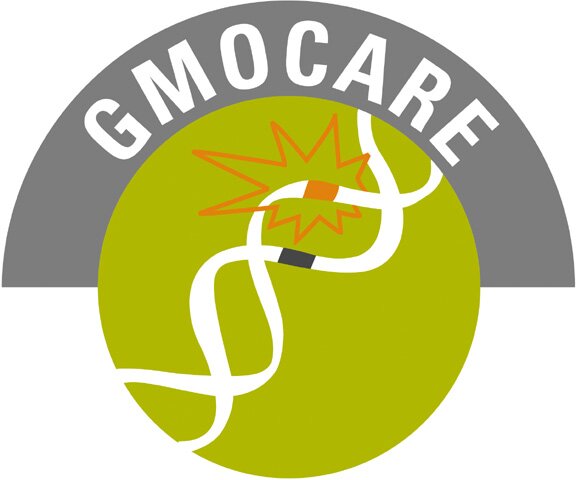
New methodologies for assessing the potential of unintended effects in genetically modified food crops

|
About GMOCARE
New methodologies for assessing the potential of unintended effects in genetically modified food crops |
|
Introduction Europe takes care of genetically modified food. Scientists from eleven European research organisations have won EU funding to investigate the safety of genetically-modified (GM) food crops. The European Union-funded consortium, GMOCARE, is co-ordinated by Dr Hubert Noteborn at RIKILT. He is responsible to the European Commission for the scientific and financial management of the project and chairs the management committee.
Issues of genetically modified foods The arrival of GM food crops into the European market met with widespread public concern, particularly because of questions over food safety. One of the key issues in the risk assessment of GM crop plants is whether unexpected hazardous metabolic perturbations (so-called unintended effects) may have taken place in the organism due to genetic modification, affecting its food or nutritional status. Objectives The eleven laboratories across Europe will test the hypothesis that plant genetic engineering might cause unintended changes in food or feed crops. The programme therefore addresses the issue of "substantial equivalence" and the development of new techniques to measure it. This subject was debated at the recent OECD conference in Edinburgh. The scientists in the project have been split up into eleven workpackage groups to help work towards the project milestones. The workpackage leaders of each group, together with the co-ordinator, are responsible for running the project.
Expected results The pan-European 3-year project seeks to discover the effects of the genetic modification process on metabolic pathways in plants and to develop methodologies to eliminate potentially hazardous unintended changes in food crops at the earliest step in the food chain. Within the EU programme the consortium plan to exploit a range of approaches to help define unintended effects. These include genomics (DNA microarrays) and proteomics in addition to metabolite profiling (metabolomics) to analyse the implications of the genetic modification process in plants. The evolution of risk assessment encompassing state-of-the-art molecular tools and novel combinations of physico-chemical technologies should help to refine, complement, and hopefully reduce, animal experimentation. We will analyse the compositional variations in the GM plants but also in the proper control plants, which do not contain the target gene but which, have gone through the transformation procedure. Applications GM plants used in the programme include transgenic tomatoes with elevated carotenoid content (which have the potential to fight some human deteriorative diseases) and transgenic potatoes with modified starch, polyamine, glycoalkaloid and amino acids conten. The search for significant compositional differences between parent and GM-derived crops is central to the project. Other GM-lines like Arabidopsis and Nicotiana will be produced for academic purposes to determine what genes are involved in the process of flavonoid and lysine metabolism, growth and development.
The technology of genetic modification has accelerated rapidly in recent years but has evolved alongside outbreaks of significant food scares including BSE and the dioxin crises. It is therefore understandable that the general public are concerned and require re-assurance. This study is independent of the plant biotechnology industry. The programme involves academics throughout Europe, so the results will all be in the public domain. This European-wide project will contribute to a more informed awareness of the 'real risks' by providing an objective scientific data package directed towards a holistic view on the genetic modification process. As well as improving existing food safety and quality assessments, we hope to boost and rebuild the Union's citizens confidence and their trust in the supply of wholesome safe, nutritious and healthy GM food crops. Organisation structure
The project's full title is "New methodologies for assessing the potential of unintended effects in genetically modified food crops (GMOCARE).
|
|||||||||||||||||||||
About GMOCARE - Results - Press Releases |